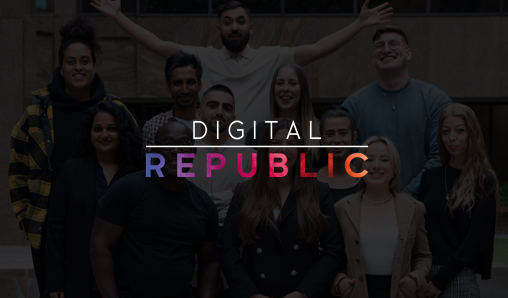
Data Tells Us That A Data Culture Matters
Implementing a data culture can help organizations become more agile, responsive to customer needs, and open to innovation. Here’s a look at what it means to build a data culture, and the benefits of organizing for data operations at scale.
The digital revolution presents every business with unprecedented opportunity—and risk. Cheap and abundant online resources promise new products, new markets, and new opportunities for richer customer relations. They also introduce competition and perpetual disruption.
When you’re beset by change, it’s good to remember a few unchanging, core business principles: Know your market. Focus on your customer. Perfect your offering, and be ready to adapt it to changing conditions. Seek efficiency. The key differentiators that keep you competitive are still your best asset, and you have new ways to make it work for you.
In other words, get your data together and use it well. Build a workplace culture around data availability and awareness—looking swiftly at things like market changes, reactions to product tweaks, or responses to ads or emails. Awareness, speed, and agility are particularly important now, when because of the pandemic, so many habits and practices have changed. The pandemic will end, but it’s unlikely we’re headed back to the old status quo.
Everyone’s data culture looks different in practice, but alignment is key
The forms that data culture takes will vary depending on the people involved and the organizational mission. If you provide the same set of technologies and data to two different teams with the objective to innovate, or solve a hard problem, you can get two very different outcomes. Different teams will need to align on their goals and their data to start building a successful culture.
Culture is an accelerating agent in and of itself. According to this report from McKinsey and Company on why data culture matters: “Culture can be a compounding problem or a compounding solution. When an organization’s data mission is detached from business strategy and core operations, it should come as no surprise that the results of analytics initiatives may fail to meet expectations. But when excitement about data analytics infuses the entire organization, it becomes a source of energy and momentum. The technology, after all, is amazing. Imagine how far it can go with a culture to match.”
These are revolutionary, data-driven times we live in. We came to them because we used data well.
As you think about organizational change, it may be useful to remember that not all aspects of change are disruptive. When you dig deep, it’s clear that using data is nothing new. Since the dawn of commerce, people have observed facts, figured out what matters, and sought patterns to leverage. Modern statistics dates to 1749, and data-powered management has radically raised global GDP for over a century with ever-increasing sophistication. These are revolutionary, data-driven times we live in. We came to them because we used data well.
How people organize their work changes with the amount and quality of the data they have. Ancient farmers used the informal data of watching weather patterns, while industrialists patented standardized machine tools. At the dawn of the computer era, we had applied mathematics and operations research.
Now we need a stronger method, one that can become widespread throughout the enterprise.
Why data culture has to scale, too
What does that method look like? Something proportionate to the opportunity. In 2002, digital storage capacity overtook total analog capacity. Since then, the compounded annual growth rate of data owned by a typical corporation has been about 60%. Not only has the amount of data increased, it now comes from a more diverse set of sources, including browsers, sensors, smartphones, and mobile devices, not to mention other computers. The compound annual growth rate of change is incalculable.
Google thinks about these opportunities a lot. We were founded, after all, with a mission to organize all the world’s information and make it universally accessible and useful, and over the years we’ve solved a number of fascinating problems around yielding insights and action from large amounts of different kinds of data—now done at blistering velocity.
We work to provide digital insights and the capability to take action to both consumers and enterprises, both in our advertising work with businesses and now, through the tools and services for data management and insights we offer at Google Cloud. We hear how our products are helping accelerate digital transformation and innovation at companies around the world, including ANZ, Mayo Clinic, and UPS.
Great businesses are effective because they have great processes that make great products, reflecting great understanding and care for their customers.
AirAsia is another example. They are en route to becoming a “digital airline.” Their transformation is already helping them extract new insights, become more flexible, and deliver more personalized experiences so they can stand out in their industry. “We wanted to better ensure we were using data correctly to become more agile, efficient, and customer-oriented,” says Lye Kong Wei, chief of data science, group head at AirAsia.
The company has been able to make efficient decisions faster using Google Cloud, such as reducing food waste on flights using ML modeling.
We’ve also learned a number of lessons on internal organization to optimize on data, as well, both in our own journey and from helping our customers solve hard problems. Some of those lessons inform this whitepaper on why a data culture matters. It comes down to four key pillars:
- Operating with trust
- Democratizing insights
- Increasing business agility
- Applying intelligence
There are several striking things about organizing for data operations at scale. Advances in the technologies surrounding data means there’s more access and easier manageability. Managing and working with data at scale is hard, and poses a new challenge when compared to working with data in the past. In many cases, this is balanced by today’s better process automation and tools to make sense of the gathered data. Of course, more access means new challenges in security, quality, and the interpretability of that data.
Great businesses are effective because they have great processes that make great products, reflecting great understanding and care for their customers. In other words, all great businesses have great internal cultures that produce these results. People adapt with curiosity and creativity. When appropriate, they challenge the status quo and innovate based on new insights. They leverage the power of data they are entrusted with, adapting and applying processes to generate new value from data.
That’s never been more true than today, when titanic digital shifts bring into new and sharper focus the need to get culture right around collecting and using data at scale. Getting it right early on is important, because history shows us something else: Those working toward new goals never turn down having more data, as long as it’s useful. Advances in cloud computing, data management, data analytics and artificial intelligence technologies aren’t slowing down. Neither should any business, in its hunger to change the world.
Like any insight, getting started with a data culture starts with a question
Will data culture be a problem or a solution for your organization? And if it’s a solution, what will that look like? How will you know it’s a success? These questions can help you get started or build on what’s already been started. Data culture will look different for different businesses in different industries. You and your stakeholders will know what’s best for your teams and organization, and the data culture you build will be the one that works best for your business.
Keep learning: Does the key to business transformation start with your organization’s data culture? Read this whitepaper to learn how to foster a culture that improves agility, intelligence, insights, and trust.
Originally posted by Quentin Hardy
Found this blog interesting? Check out this one too.
Are you a digital practitioner who has got more questions than answers during these uncertain times? Contact us submitting a quick form here. We are here to support you!
Digital analytics, cloud, data science, programmatic or optimisation expert, and looking for a job at the moment? Check out our latest live vacancies here


